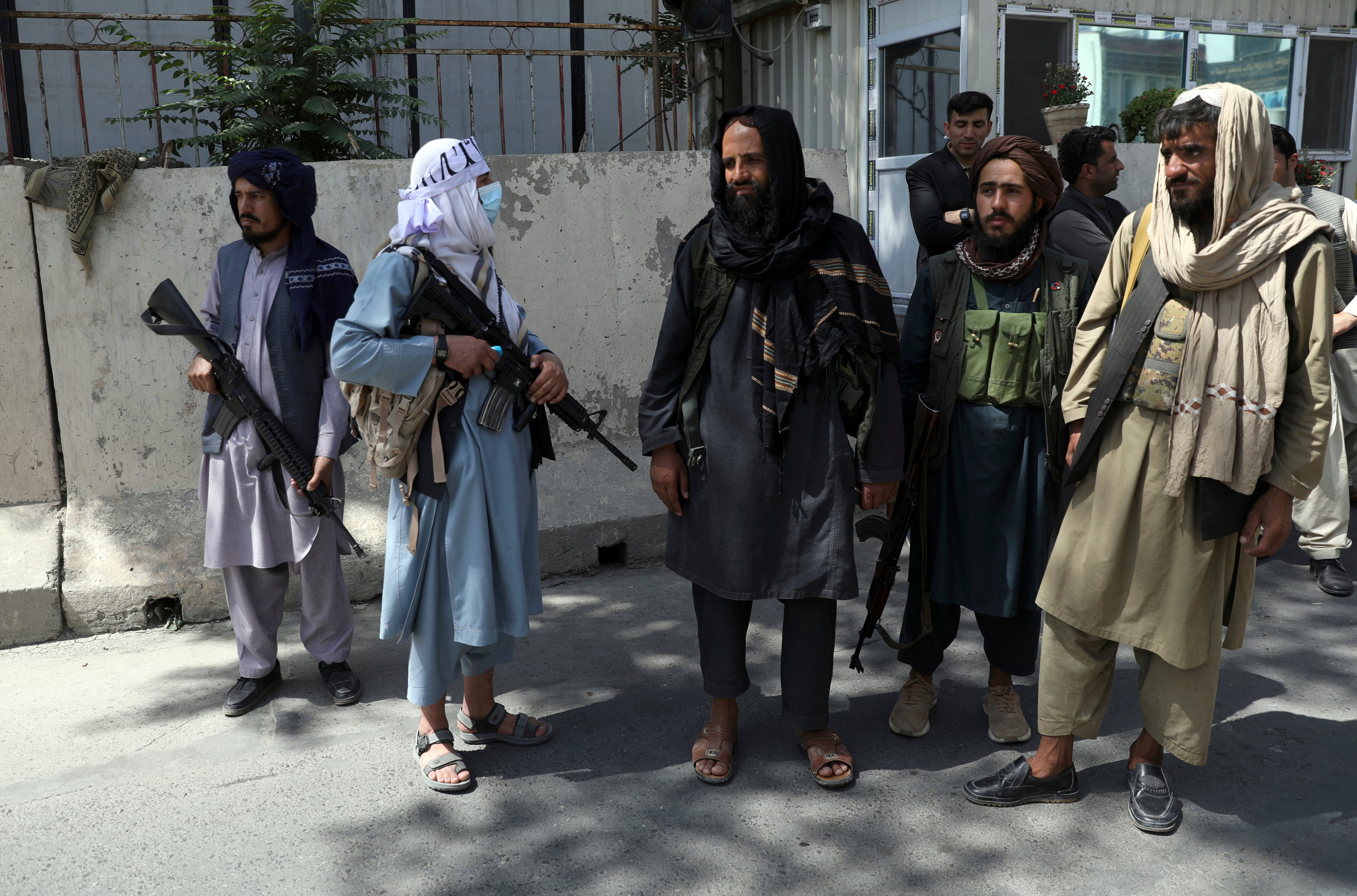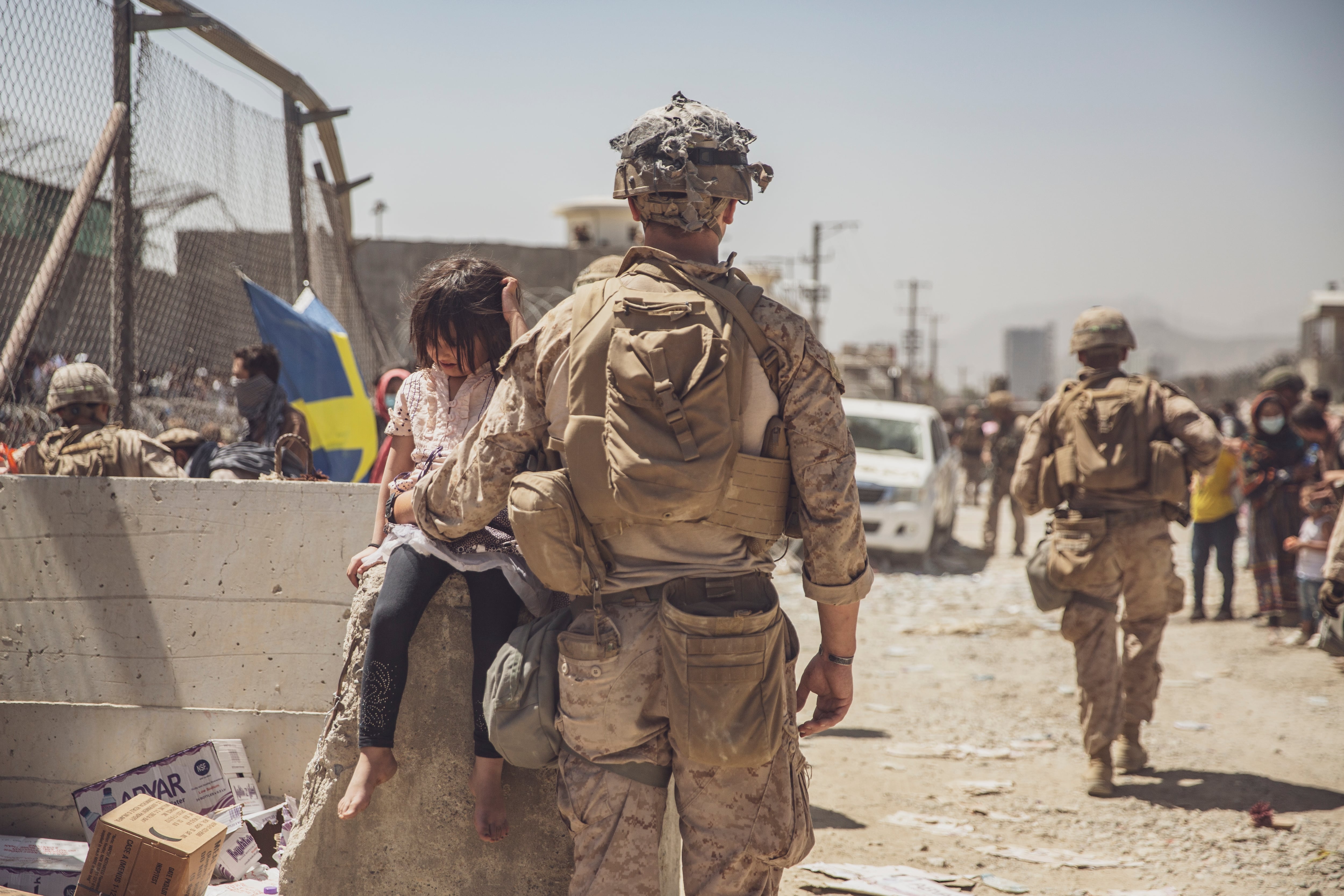Calls and texts to the Veterans Crisis Line have increased significantly amid the end of U.S. operations in Afghanistan in recent weeks. But Veterans Affairs officials say that’s good news, not bad.
“The more that we can do to normalize discussions about crisis and about suicide and how it’s okay to reach out for help, the better,” said Dr. Lisa Kearney, director of crisis line operations. “I’m thankful for it, hopefully we can … make it easier for folks to reach us.”
Calls to the crisis line jumped about 7 percent over the last three weeks compared to August 2020. Online chats with crisis line staff are up almost 40 percent. Texts to the emergency service are up about 98 percent.
That time frame coincides with international headlines chronicling the fall of the democratic government in Afghanistan, the return of Taliban rule and the chaotic end to U.S. military operations there.
However, Dr. Matthew Miller, National Director of VA’s Suicide Prevention Program, cautioned against assumptions that all of the increase is from veterans of the recent wars traumatized directly by the events overseas.
RELATED

“I can’t think of anything in suicide prevention that can be explained by one thing or one factor,” he said in a roundtable with reporters on Tuesday.
Miller noted that along with the situation in Afghanistan, veterans across the country have been inundated with reminders of the upcoming anniversary of the Sept. 11, 2001, terrorist attacks, faced a host of late-summer natural disasters in various locations, and seen pandemic restrictions re-emerge as coronavirus case numbers increase again.
In several cases, Miller said, Vietnam-era veterans have reached out to the crisis line in recent weeks to talk about their own wartime traumas and concerns, spurred on by the violence and confusion in Afghanistan.
Media sharing of the crisis line information has also been up in response to the recent headlines, which in turn could be encouraging more individuals to seek help for issues they previously have kept to themselves.
And Miller said that staffers typically see increases in anxiety and mental health challenges at the start of fall, some of which may be aggravated this year by the other factors.
Regardless of the reasons, VA officials said they’re encouraged by the increased use of the service and not concerned.
RELATED

“Every call is worthwhile, every call is exactly what we are there for,” Miller said. “We find when veterans call us and talk with us, or engage with us in any way, it breaks down a wall in terms of stigma and in terms of barriers to care they may perceive.
“And when those walls are broken down, then they are more likely to contact us the next time they are in a crisis.”
An average of about 18 veterans-a-day die by suicide, a figure that has held steady in recent years despite increased efforts to address mental health care within the veteran community.
Numerous public figures and public awareness campaigns in recent years have quoted the figure of “20-a-day” in reference to veterans suicide, but VA officials have worked to clarify that estimate also includes figures for active-duty troops, guardsmen and reservists.
The crisis line was established in 2007 to help deal with the problem. Individuals can call anonymously or provide personal information to see what specific medical or other benefits they may be eligible to receive.
Veterans experiencing a mental health emergency can contact the Veteran Crisis Line at 1-800-273-8255 and select option 1 for a VA staffer. Veterans, troops or their family members can also text 838255 or visit VeteransCrisisLine.net for chat services.
Leo covers Congress, Veterans Affairs and the White House for Military Times. He has covered Washington, D.C. since 2004, focusing on military personnel and veterans policies. His work has earned numerous honors, including a 2009 Polk award, a 2010 National Headliner Award, the IAVA Leadership in Journalism award and the VFW News Media award.





